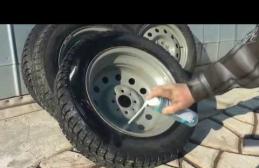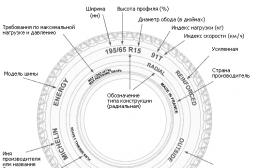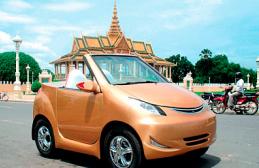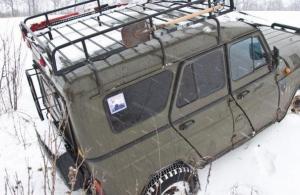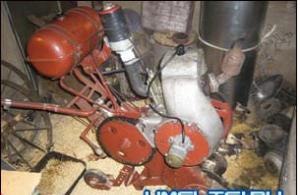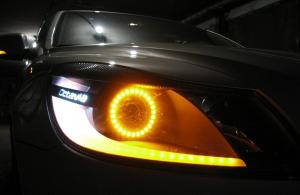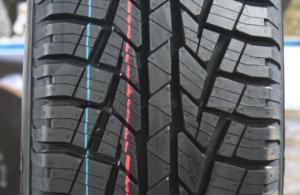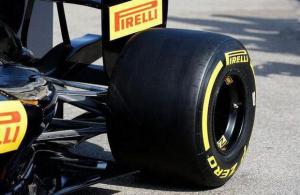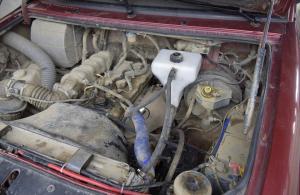(general manager),
Kfaus Kennburg (Executive Director)
Automobili Lamborghini S.p.A (subsidiary of Audi AG) ,
Bentley Motors Ltd.
Bugatti Automobiles S.A.S. (subsidiary of Volkswagen France), Scania AB
SEAT S.A.
Skoda Auto a.s.
Volkswagen Marine
Porsche
Ducati Motor Holding S.p.A. (subsidiary of Audi AG)
ItalDesign Giugiaro
The Volkswagen Group consists of 342 companies engaged in the production of automobiles and related services. As of September 2011, Porsche Automobil Holding SE (also known as Porsche SE) owns 50.73% of the voting shares of Volkswagen AG. In turn, Volkswagen AG owns 49.9% of the ordinary shares of the intermediate holding Porsche Zwischenholding GmbH (the remaining 50.1% is owned directly by Porsche SE), and Porsche Zwischenholding GmbH owns 100% of the shares of the prestigious car manufacturer Porsche AG. Negotiations are underway to merge into a single VW-Porsche structure. Until September 2015, Martin Winterkorn was simultaneously the Chairman of the Management Board of Porsche SE and Volkswagen AG.
According to the results of 9 months of 2009, it was the world's largest car manufacturer. Ranked 14th in the Fortune Global 500 in 2009. The leader of the European car market (over 25%).
Story
The concern traces its origins to the company founded by "Gesellschaft zur Vorbereitung des Deutschen Volkswagens mbH" ("Society for the preparation of the German people's car" under the National Socialist organization "Strength through joy") Ferdinand Porsche in 1937 in Berlin. In early 1938, construction began on the first Volkswagen plant in Wolfsburg; On September 16 of the same year, the company was renamed Volkswagenwerk GmbH. After World War II, the factories came under the control of the British military administration.
On August 22, 1960, the limited liability company "Volkswagen Plants" was founded, which after the founding of the Federal Republic of Germany came to belong to the state of Lower Saxony. By decision of the Annual General Meeting in 1985, the name of the company was changed to "Volkswagen AG". In addition to the automotive and motorcycle industries, the concern provided financial and logistics services and had a small food business.
In the early 1990s, the concern experienced great difficulties. Ferdinand Piëch, who was appointed Chairman of the Management Board of the concern in 1993, turned out to be an excellent crisis manager. He practically saved the concern by transferring it to a four-day work week. Until 2015, Piëch played one of the key roles in the concern. It was he who achieved outstanding success, choosing an offensive policy and acquiring a whole galaxy of popular car brands.
Corporate structure
Financial departmentIn March 1991, in order to optimize the organizational structure, Volkswagen forms an internal division called Volkswagen Finanz, which in January 1994 becomes independent within the concern as a closed joint stock company Volkswagen Financial Services. 100% of the share capital belongs to Volkswagen AG. As a banking and financial structure, Volkswagen Financial Services gains access to international financial markets and the opportunity to finance projects on favorable terms. Currently, the financial division of the Group, Volkswagen Financial Services, is the largest financial operator in the European automotive market, headquartered in Braunschweig. Assets of Volkswagen Financial Services at the end of 2009 amounted to more than 60.2 billion euros. Volkswagen Financial Services employs more than 5,000 people worldwide, including 3,600 in Germany itself. The division deals with:
ActivityIn 2010, the revenue of the Volkswagen AG concern amounted to € 57.243 billion, net profit - € 1.55 billion. In 2009, despite the global crisis and a general decline in car sales, the company managed to increase car sales worldwide by 0.6%. This is a record of sales, which reached the level of 6.23 million vehicles. In 2006, the concern sold 5.72 million vehicles worth € 104.9 billion (net profit for this period was € 2.75 billion). More than 370 thousand people worked at the enterprises of the Group. In 2005, the concern produced 5.22 million and sold 5.19 million vehicles. 7.5% of sales were in Germany, 44.7% in Europe, 15% in North America, 6.6% in Asia Pacific, 4.4% in South America and 1.8% in Africa. Revenues in 2005 amounted to € 95.3 billion, an increase of 7% compared to 2004, VW's net profit - € 1.12 billion (€ 697 million in 2004). In April 2019, information appeared that Volkswagen, together with the Chinese company Anhui Jianghuai Automobile (JAC), were planning to build a new plant for the production of electric vehicles in China. According to preliminary data, the construction of a new production will require about $ 750 million. ProductionThe Volkswagen AG concern owns 48 automotive factories in 15 countries in Europe and in six countries in America, Asia and Africa. More than 370 thousand people work at the enterprises of the group, more than 26 600 cars are produced daily, authorized sales and service of cars are carried out in more than 150 countries of the world. Volkswagen in RussiaIn Russia, Volkswagen Group Rus LLC is the official distributor of Volkswagen, Audi, ŠKODA, Bentley, Lamborghini, Ducati and Volkswagen Commercial vehicles. The company's activity as a single importing company dates back to 2003. The CEO is Markus Ozegovich. In 2014, Volkswagen Group Rus became the official partner of the Olympic and Paralympic Winter Games in Sochi. To organize the transfer of guests, the company provided the Sochi-2014 Organizing Committee with more than 3,000 cars of the brands Volkswagen, Audi, Škoda and Volkswagen-Commercial vehicles, most of which were produced at the Russian factories of the company. In March 2016, the company put into operation a new warehouse of spare parts and accessories in the city of Chekhov near Moscow. In February 2018, the company's plant won the Transformer of the Year award for the best performance among Volkswagen factories in the world. In July 2018, the company expanded the boundaries of its activities and received the status of an official importer of Volkswagen brands - passenger cars and Volkswagen-Commercial vehicles in Kazakhstan. In November 2018, the Volkswagen Group Rus plant in Kaluga produced the 500,000th Volkswagen Polo sedan in the Drive configuration with a 1.6-liter 110 hp engine. With. and a 6-speed automatic transmission. This car was handed over to the Russian car-sharing operator Delimobil. In 2018, the company's sales in the Russian market amounted to 211,800 vehicles. The market share at the end of 2018 reached 11.8%. Sales of all brands of the Volkswagen Group in Russia amounted to 229,800 (including the results of sales of the brands Porsche, MAN and Scania). In 2018, 200,000 vehicles were produced at the company's production sites: 143,500 vehicles at the company's plant in Kaluga and 56,500 vehicles at the production site in Nizhny Novgorod. Engine production totaled 161,000 engines, 44,000 of which were exported to production sites in Spain and the Czech Republic. Factory in KalugaOn May 29, 2006, the company signed an investment agreement with the administration of the Kaluga region and the Ministry of Economic Development of Russia on the construction of an automobile plant near the city of Kaluga, in the Grabtsevo technopark. The initial investment in the project was 570 million Euros. Initially, the plant, opened on November 28, 2007, produced Škoda Octavia cars using SKD technology. In October 2009, the plant launched a full cycle production of bodies, including welding and painting. At the end of October 2009, Volkswagen Group Rus announced work on a budget B-class sedan project based on the Volkswagen Polo hatchback specifically for the Russian market. At the beginning of June 2010, it became known about the practical readiness of the car, called the Volkswagen Polo sedan. The car was put into production at the plant in Kaluga in the summer of 2010. The plant currently produces Volkswagen Tiguan, Volkswagen Polo and Škoda Rapid models. In 2013, the level of localization of production was estimated at 50%. In November 2016, a new body shop with an area of 12,000 square meters was opened at the plant in Kaluga. m. Additional capacities of the enterprise allowed organizing the production of the second generation Volkswagen Tiguan. The Volkswagen Group's total investment in the production of the new Tiguan was € 180 million. In June 2017, the production of the updated Škoda Rapid started at the plant in Kaluga. Engine plantIn 2015, a plant for the production of 1.6 MPI engines of the EA211 series was opened in Kaluga. The plant's capacity is 150 thousand engines per year. In February 2016, the millionth car rolled off the assembly line in Kaluga, which was the Volkswagen Polo Allstar with a locally produced engine. In October 2016, the 200,000th 1.6 MPI EA211 series engine was produced since the opening of the engine manufacturing plant. In 2018, 161 thousand engines were manufactured, of which 44 thousand were exported. Production in Nizhny NovgorodSince 2012, the company has started producing cars at the GAZ Group production site in Nizhny Novgorod. The contract assembly agreement with the Russian GAZ Group was signed on June 14, 2011. ... In accordance with the agreement, a full cycle of production of Škoda Octavia and Škoda Kodiaq cars is currently organized at GAZ. In June 2017, Volkswagen Group and GAZ Group signed a cooperation agreement in three areas:
|
Today the Volkswagen concern is the largest car manufacturer in Europe and the second in the world.
Today, the German group, which once began with the release of ultra-budget "Zhukov", offers products for any buyer. All this thanks to the unification of several brands under a single leadership.
The corporate portfolio of the group includes eight legendary brands, most of which at one time found themselves in a difficult financial situation. The companies were forced to enter into an alliance with the German manufacturer as it was a matter of their survival.
Volkswagen
The brand was founded by Adolf Hitler in 1938. Today it specializes in the mass segment. The most famous models: Golf, Passat, Polo, Tiguan.
Audi
Specializes in the premium segment. The brand was joined to Volkswagen in 1964. The most famous models: A4, A6, R8. In 1993, the management company Audi AG acquired the Ducati and Lamborghini brands, while remaining the property of Volkswagen.
Porsche
Specializes in premium and super premium segments. Although he was one of the founders of the first Volkswagen plant, the merger of the company he created to the German giant took place only in 2007. Today the allies are mutual shareholders. The most famous models: Cayenne, Panamera.
Bentley
In 1929, the English premium car manufacturer was sold to Rolls-Royce. In 1997, after the financial crisis, the Rolls-Royce brand was sold to BMW, and the Bentley brand went to Volkswagen. The most famous models: Continental GT, Flying Spur.
Skoda
This brand survived the German occupation, the Soviet era and was merged with Volkswagen in 1991. The change of the strategic partner allowed to increase production by 5 times. Today Skoda specializes in the mass budget segment. The most famous models: Octavia, Fabia, Yeti.
SEAT
In 1986, due to financial difficulties, the Italian concern FIAT sold 99.9% of the shares of the Spanish automaker to the Volkswagen group. Today the brand specializes in the mass segment. The most famous models: Ibiza, Leon.
Lamborghini
At the turn of the 60-70s. of the last century, the Italian sports car manufacturer changed owners several times. In 1998, the brand was bought by Audi AG and found itself under the wing of Volkswagen. The most famous models: Aventador, Huracan.
Bugatti
In 1956, this legendary brand actually ceased to exist. In the late 80s, Italian entrepreneur Romano Artioli revived production and in 1998 sold the asset to the Volkswagen concern. Today the brand specializes in the super premium segment. Best known model: Veyron
What other companies does Volkswagen own?
- MAN- a manufacturer of trucks, truck tractors, dump trucks, buses, hybrid and diesel engines;
- Scania- manufacturer of trucks, truck tractors, dump trucks, buses and diesel engines;
- Volkswagen Commercial Vehicles- manufacturer of commercial vehicles (buses, minibuses, tractors);
- Ducati motor- motorcycle manufacturer;
- ItalDesign Giugiaro- automotive design studio.
For some time, there were rumors about Volkswagen's intention to buy the Italian-American alliance Fiat-Chrysler to become the world's largest automaker, but the deal never materialized.
In the post-war years, when the factories of the automaker were under the control of the British administration, Henry Ford could become the owner of the company, but the deal did not take place - the Americans considered that the company was “not worth a penny,” and their “popular” car “Beetle” was absolutely inconsistent technical parameters that must be applied to passenger cars. In the years that followed, VW showed how deeply overseas automotive gurus had been mistaken.
In the early 1950s, the automaker produced about 65% of all cars in Germany, which provided the company with a turnover of $ 1.4 billion. The 70s became the golden years, when the company created two legendary models at once - "Passat" and "Golf", where the latter became the founder of a whole class of cars.
The VW Group includes brands such as Volkswagen, Skoda, Bugatti, Lamborghini, Audi, Seat, Bentley, as well as companies that manufacture Scania and MAN trucks.
Where are VW cars assembled?
Initially, the production of "people's" cars was carried out directly in Germany, but in the course of the development of the brand, factories began to appear on other continents, in particular in South and North America, as well as in Africa. The pioneer was the company's plant, built in the city of San Bernard, Brazil, where for more than 15 years they were engaged in the production of the legendary "Beetle", and now there is one of the main offices responsible for the design of future cars of the brand.
Currently, Volkswagen car factories are located in 12 large countries, including: Brazil, Argentina, Germany, Mexico, South Africa, Russia, Poland, Belgium, Spain, Czech Republic and a number of other countries. The company's revenues over the past few years have far exceeded the 60 billion euro mark, which makes the carmaker the largest automaker in the world.
The lineup of the company consists of the following models:
Where is Volkswagen Golf assembled?

VW Golf is the founder of golf-class cars, the latest generation of which is currently produced in Germany, in the city of Wolfsburg. At the same time, most of the cars of the previous generation were produced in Russia and Brazil.
Where is Volkswagen Passat going?

VW Passat is a full-size sedan, representative of the D-class. The assembly of cars of this model is now established at factories in the cities of Kaluga (Russia), Emden and Moselle (Germany), Luanda (Angola), Solomonovo (Ukraine), as well as Changchun (China).
Where is Volkswagen Beetle going?

VW Beetle is the iconic car of the company, the production of which is now established in Mexico.
Where are Volkswagen Polos going?

VW Polo - presented in two modifications - "hatchback" and "sedan", the first is produced in Spain, Poland and Germany, and the second - mainly in Russia.
Where is the Volkswagen Touareg going?

VW Touareg is a full-fledged off-road vehicle, the production of which is now established in the cities of Bratislava (Slovakia) and Kaluga (Russia). The car concept is at the heart of the Porsche Cayenne luxury SUV.
Where is Volkswagen Transporter going?

The VW Transporter is no less legendary than the Beatle and has the potential to be a great commercial and family car. The production of the model is now represented in the cities of Hannover (Germany), Poznan (Poland) and Kaluga (Russia).
Where is Volkswagen Amarok going?

VW Amarok is a modern car of the company, belonging to the class of pickups. The model is produced in Hannover, as well as in the city of Pacheco, located in Argentina.
Where is Volkswagen Jetta going?

VW Jetta is another popular model of the company that combines the spaciousness of a sedan and the charge of a hatchback. Cars designed for the European and American markets are produced in Mexico, while Russians are offered models made in Russia at a plant in Kaluga.
Where is Volkswagen Caddy going?

The VW Caddy is an excellent commercial vehicle that is actively purchased by large companies as well as small entrepreneurs. The assembly of the model is carried out in Germany, as well as in Russia, while in the first case the cars are delivered to the European, and in the second - to the Russian and Eastern markets.
VW is famous for its attitude to the quality of the cars produced, therefore, regardless of the country and city in which this or that model of the company is produced, it will certainly comply with strict corporate standards. This is achieved through the use of modern equipment, as well as strict quality control at all stages of the assembly.
Volkswagen Konzern (Rus. Concern "Volkswagen", in English-speaking sources - Volkswagen Group, sometimes VW Group - German automobile concern (group of companies). The parent (parent) company of the concern is Volkswagen Aktiengesellschaft, often known as Volkswagen AG (formerly VAG - the abbreviation stands for as Volkswagen Audi Gruppe. Headquartered in Wolfsburg, Germany. The company is named after the brand Volkswagen (German Volkswagen) - “people's car.” As of September 2011, 50.73% of the voting shares of Volkswagen AG belong to the holding Porsche SE Volkswagen AG owns 100% of the common shares of the intermediate holding Porsche Zwischenholding GmbH, and Porsche Zwischenholding GmbH owns 100% of the prestigious car manufacturer Porsche AG. Negotiations are under way to merge into a single VW-Porsche. Martin Winterkorn is currently underway is simultaneously the Chairman of the Management Board of Porsche SE and Volkswagen AG. Vol kswagen is made up of 342 car manufacturing and related services companies. According to the results of 9 months of 2009, it was the world's largest car manufacturer. Ranked 14th in the Fortune Global 500 (2009). From July 1998 to December 2002, a division of the Volkswagen Bentley group produced cars under the Rolls-Royce brand under an agreement with BMW, which acquired the rights to the brand from Vickers. Since 2003, only BMW has been able to produce cars under the Rolls-Royce brand. In December 2009, the Volkswagen Group entered into an alliance with Japanese Suzuki, exchanging with the latter stakes (the Germans received a 20% stake in Suzuki) and announcing the joint development of environmentally friendly vehicles. Less than two years later, in September 2011, the collapse of this alliance was announced. Subdivisions of the Volkswagen group are: Volkswagen (passenger cars) - currently the part of the concern engaged in the production of passenger cars is not registered as a subsidiary joint-stock company, but is directly subordinate to the management of Volkswagen AG. Audi is the last car brand of the Auto Union group acquired from Daimler-Benz in 1964. NSU Motorenwerke - Acquired in 1969 and merged into the Audi Division. Not used as an independent brand since 1977. Seat - a controlling stake in the company (53%) was acquired from the state in 1986. Since 1990, the brand has practically been the property of the Volkswagen Group, which owns 99.99% of the company's shares. Škoda - the company was acquired in 1991. Volkswagen Commercial Vehicles (Volkswagen Nutzfahrzeuge) - was part of Volkswagen AG, but in 1995, thanks to the efforts of Birnd Weideman, the previous chairman of the group, became an independent division within the Volkswagen Group. The division is engaged in the production of commercial vehicles: vans, buses and tractors. The Bentley company was acquired in 1998 from the British concern Vickers together with Rolls-Royce, but cannot independently produce cars under this brand, since the brand itself was sold to BMW. Bugatti - the brand was acquired in 1998. Lamborghini - The company was acquired by a subsidiary of Audi in 1998. Scania AB - the majority stake in the company (70.94%) was acquired in 2009. Manufactures truck tractors, trucks and dump trucks, buses and diesel engines. MAN AG - a controlling stake in the company (55.9%) was acquired in 2011. Manufacturer of semitrailer tractors, trucks and dump trucks, buses, diesel and hybrid engines. Porsche - 49.9% of Porsche AG acquired in 2009. By 2011, a merger with parent Porsche SE was planned to create a single integrated automobile company, but this did not happen. The merger of Porsche and Volkswagen has been postponed indefinitely. Finally, in 2012, Volkswagen completed the acquisition of Porsche, making it the 12th brand in the German group. The deal was closed after Volkswagen acquired 50.1 percent of Porsche's shares, which cost the concern 4.49 billion euros and one of its ordinary shares. Volkswagen Group is one of the largest shareholders of the Japanese company Suzuki Motor Corporation. Ducati Motor Holding S.p.A. - one of the leading manufacturers of premium motorcycles, acquired by the Volkswagen Group division - Audi AG - on April 18, 2012 from Investindustrial SpA for $ 1.1 billion. Also, as of 2013, Volkswagen is the owner of the Russian Moskvich trademark. Volkswagen retains the right to use the brand and all emblems until 2021. In March 1991, in order to optimize the organizational structure, Volkswagen forms an internal division called Volkswagen Finanz, which in January 1994 becomes independent within the concern as a closed joint stock company Volkswagen Financial Services. 100% of the share capital belongs to the Volkswagen Group. As a banking and financial structure, Volkswagen Financial Services gains access to international financial markets and the opportunity to finance projects on favorable terms. Currently, the financial division of the Group, Volkswagen Financial Services, is the largest financial operator in the European automotive market, headquartered in Braunschweig. The assets of Volkswagen Financial Services as of December 31, 2009 amounted to more than 60.2 billion euros. Volkswagen Financial Services employs more than 5,000 people worldwide, including 3,600 in Germany itself. The division is engaged in: financing of production and purchase of cars for private and corporate clients (Volkswagen Bank); providing banking services to private and corporate clients (Volkswagen Bank direct / Audi Bank direct); provision of insurance services to private and corporate clients (Volkswagen Bank GmbH / Volkswagen-Versicherungsdienst: Volkswagen Bank, Audi Bank, Seat Bank, Škoda Bank); provision of leasing services to private and corporate clients (Volkswagen Leasing); fleet management (Volkswagen Leasing / LeasePlan Corporation); In 2010, the Volkswagen Group's revenue amounted to € 57.243 billion, net profit - € 1.55 billion. In 2009, despite the global crisis and a general decline in car sales, the company managed to increase its car sales worldwide by 0.6%. This is a record of sales, which reached the level of 6.23 million vehicles. In 2006, the concern sold 5.72 million vehicles worth € 104.9 billion (net profit for this period was € 2.75 billion). More than 370 thousand people work at the enterprises of the Group. In 2005, the concern produced 5219.5 thousand and sold 5192.6 thousand cars. 7.5% of sales were in Germany, 44.7% in Europe, 15% in North America, 6.6% in Asia Pacific, 4.4% in South America and 1.8% in Africa. Revenues in 2005 amounted to € 95.3 billion, an increase of 7% compared to 2004, net profit - € 1.12 billion (€ 697 million in 2004). Manufacturing The Volkswagen Group owns 48 car manufacturers in 15 European countries and six countries in America, Asia and Africa. More than 370 thousand people work at the enterprises of the group, more than 26`600 cars are produced daily, authorized sales and service of cars are carried out in more than 150 countries of the world. In May 2009, plans for a corporate merger between Porsche AG and Volkswagen were announced. At this stage, negotiations are suspended due to lack of clarity on the financial situation of Porsche. Volkswagen Group in Russia On May 29, 2006 Volkswagen Group signed an investment agreement with the administration of the Kaluga region and the Ministry of Economic Development of Russia on the construction of an automobile plant near the city of Kaluga, in the Grabtsevo technopark. At the end of July 2007, the EBRD, one of the project's lenders, estimated the total cost of the project, including the costs of organizing the production of components, at € 1.042 billion. Initially, the plant, opened on November 28, 2007, produced Škoda Octavia cars in the amount of no more than 20 thousand cars a year using SKD technology (Semi Knocked Down - assembly of cars from large blocks or "large-scale assembly"). In October 2009, the plant launched a complete line for the assembly of CKD cars (Completely Knocked Down - complete assembly of a car from finished parts, including body welding). At first, the Škoda Octavia and Volkswagen Tiguan cars were produced using the CKD method, in 2010 the Škoda Fabia and the Volkswagen Polo sedan specially designed for the Russian market were launched. It is expected that after the opening of a new production facility, the plant will be able to produce up to 150,000 vehicles per year (including Audi A4, A5, Q5, A6 and Q7 - all by SKD). The number of employees at the plant in 2010 will be increased to 3 thousand people. On January 12, 2009, a reorganization took place in the form of the merger of two Russian subsidiaries. Volkswagen Group Rus LLC was joined by Volkswagen Rus LLC. The first one was registered in Moscow in 1999 (until 2003 it was named Volkswagen Group Automobiles LLC) and was an import structure that managed sales and after-sales service of cars. The second was created in 2006 in Kaluga to manage a new plant where Volkswagen and Škoda cars are assembled. According to the company, the merger will simplify coordination between Kaluga and Moscow, as well as unite personnel and finance. Dietmar Kortsekva (since 2010 - Markus Ozegovich) became the CEO of the new structure. In October 2009, SKD assembly of the following models was carried out at the Kaluga plant: Skoda Octavia, Octavia Combi, Octavia Tour, Octavia RS, Octavia Scout, Škoda Superb, Škoda Roomster, Škoda Fabia, Škoda Fabia Combi, Škoda Yeti, Volkswagen Passat, Volkswagen Passat CC, Volkswagen Tiguan, Volkswagen Golf, Volkswagen Touareg, Volkswagen Jetta, Volkswagen T5, Volkswagen T5 lang, Volkswagen Caddy and Volkswagen Caddy maxy. Since 2012, Volkswagen began producing cars at the GAZ plant in Nizhny Novgorod. A cooperation agreement with the Russian GAZ Group was signed on June 14, 2011. Nizhny Novgorod plans to produce the brands Volkswagen Jetta, Skoda Octavia and Škoda Yeti. At the beginning of 2013, the production of a full cycle Skoda Yeti was mastered in Nizhny Novgorod. Other models are on the way in the near future. At the end of October 2009, Volkswagen Group Rus LLC announced work on a budget B-class sedan project based on the Polo hatchback specifically for the Russian market. At the beginning of June 2010, it became known about the practical readiness of the car, called the Volkswagen Polo sedan. The car was put into production at the plant in Kaluga in the summer of 2010.
The Volkswagen Group is one of the world's largest automotive companies. Today it includes 12 companies:
Volkswagen, Audi, Skoda, Seat, Lamborghini, Bugatti, Bentley, Man, Scania, Volkswagen commercial vehicles, Porsche and Ducati.
Few facts about each company that is part of the concern.
The foundation of the Volkswagen company began in October 1933 in Berlin, where Adolf Hitler announced the need to create a reliable and inexpensive car for the people of Germany.
The genius designer Ferdinand Porsche embodied in metal the demands of the Fuhrer, who presented in January 1934 the drawings of the first car for the people, which was named the “people's car” (“Volks-Wagen”). The basis of the people's car was the previously developed Porsche Typ 60 model.
During the Second World War, work on the construction of Volkswagen was suspended, and the unfinished plant was redesigned for the production of military products.
VW opened its subsidiaries in 1959 in Brazil - "Volkswagen do Brasil S.A.", and then in Mexico "Volkswagen de Mexico S.A. de C.V."
The Golf I, introduced in 1974, marked a new stage in the competition in the compact car class, which became almost officially called the "golf class".
Volkswagen has brought iconic cars to the world and is firmly in the lead in many car niches.
Autostadt is a real city in a city with a length of more than 5 km and an area of 25 hectares, which is the communication platform of the Volkswagen concern, its individual brands and customers. The complex is one of the most popular tourist attractions in Germany, which is visited by about 2 million people annually. The Volkswagen Autostadt is located on the banks of an artificial canal between the center of Wolfsburg and the Volkswagen plant.

Volkswagen has its own football team (VFL "Wolfsburg") with an excellent home stadium, the Volkswagen Arena.
2. Volkswagen Commercial vehicles
It is part of the Volkswagen Group, which manufactures commercial vehicles such as vans, buses, pickups, trucks and truck tractors.
The division was originally part of VW, but in 1995 Dr. Bernd Wiedemann, former Chairman of the Management Board of Volkswagen Commercial Vehicles, announced the division of the division into an independent production unit of the group.
The Audi concern was formed as a result of the merger of four companies that produced cars and motorcycles under the brands DKW, Horch, Audi and Wanderer. On June 29, 1932, the factories Audi, Horch and DKW merged to form Auto Union AG, symbolized by the famous four rings.

In 1964, the company became part of Volkswagen. In 1965, it was decided to release all new models of the concern that had lost its independence under the Audi brand. In the early days after the takeover, Volkswagen did not want Audi to develop its own vehicles. They were going to produce the VW Zhuk model at the facilities of the enterprise. But Ludwig Kraus, who was then the head of the design department, decided to develop the model secretly from everyone. The result of his work was the Audi 100, which appeared in 1968.
In 1993, the Audi Group was formed, which eventually included the Hungarian and Brazilian divisions, the British Cosworth Technology, the Italian Automobili Lamborghini and the Spanish SEAT were taken over.
4. Automobili Lamborghini S.p.A. (in short: Lamborghini) is an Italian company that manufactures luxury sports cars. Located in the village of Sant 'Agata Bolognese, near Bologna, the company was founded in 1963 by Ferruccio Lamborghini.

In 1978, due to the oil crisis, the company declared itself bankrupt. Over the next 20 years, Automobili Lamborghini was owned by the Chrysler corporation, and then M'tec (Megatech). In 1998, Audi AG became the owner of the company.

The history of the SEAT brand dates back to 1919. Then the Italian company FIAT decided to open its branch in the town of Martorell, a suburb of Barcelona. On November 13, 1953, the first SEAT rolled off the assembly line at the Martorell plant.
On September 30, 1982, a cooperation agreement between SEAT and the Volkswagen Group was signed, and on June 9, 1986, Volkswagen acquired 51% of the shares of the Spanish company. By 1990, the Volkswagen Group became the full owner of SEAT.

The first cars under the Skoda brand were produced in 1919. On April 16, 1991, an agreement was signed to sell a 31% stake in the ownership of Škoda, a.a.s. VAG for 620 million marks.
In December 1995, VAG increased its stake to 70% by paying 1.4 billion marks. In January 1998 the company changed its name to Škoda Auto, a.s. VAG received final control in May 2000, when the remaining 30% stake was bought for 12.3 billion kroons.
A more detailed history of the Skoda brand can be read on our.
Ettore Bugatti founded his company in 1909. The Type 16 and Type 18 sports cars were manufactured in 1914. At the European Grand Prix in 1924, all the first four places were taken by the Bugatti Type 35. Today, Bugatti is focused on the production of expensive sports cars.
The Bugatti brand was acquired by Volkswagen AG in 1998. The first car it presented was the fiberglass EB118 coupe, created by ItalDesign stylist Fabrizio Giugiaro.
In 2005, the Volkswagen concern begins mass production of a new unique model, officially named the bugatti veyron 16.4.

8. Bentley is an English company specializing in the production of exclusive expensive cars that are not available to everyone.
The history of the British automaker Bentley began on January 18, 1919, when Walter Owen Bentley, together with F. Barges and G. Varley, developed their first car with an unprecedented 3-liter engine for those times.
Bentley has been producing luxury cars since 1930.
In 1952, Bentley introduced the Continental model. It was a sporty two-door car that became the fastest production sedan ever.
Bentley still produces various variants of the Continental model, which are distinguished by the excellent quality of the interior (leather from Conolli, panels in rare wood or polished aluminum) and thoughtful chassis design.

The most powerful Continental T with a shortened base and a 6.8-liter Vickers turbo engine develops 426 hp. and is rightfully considered one of the fastest coupes in the world.
Since 1998, Bentley has been part of the Volkswagen Group.
9. MAN SE is a German engineering company specializing in the production of trucks, buses and engines. Founded in 1758, it was previously called Maschinenfabrik Augsburg-Nürnberg AG (Machine factory Augsburg-Nürnberg, JSC). The headquarters are located in Munich.

From January 1943 to April 1945 inclusive MAN produced Pz Kpfw V "Panther" tanks by order of the Reich.
In 1951, the company developed the first German exhaust turbocharged diesel engine for commercial vehicles.
In 1962 MAN took over Porsche Diesel Motorenbau (the diesel tractor division of Porsche KG in the 1950s and early 1960s).
In 1979 MAN began cooperation with Volkswagen on medium-sized trucks, which received the MAN-VW brand.
Today the main shareholder of MAN is the Volkswagen Group (75.03%), the rest of the shares are in free float. In March 2013 VW put up a preliminary offer to buy the remainder of MAN shares. The purchase of the company will be considered by the MAN SE board of directors at the annual meeting on June 6.
10.Scania AB is a Swedish manufacturer of trucks, buses and industrial and marine engines, manufacturing buses since 1920. The headquarters is located in Södertälje, Sweden.

In 1969 Scania merges with the Swedish company Saab. But their cooperation did not last long, and in 1995 Scania again became an independent company.
Largest shareholders: Volkswagen AG (70.94%), MAN (17.37%).
Dr. Ing. h.c. F. Porsche AG (full name Doktor Ingenieur honoris causa Ferdinand Porsche Aktiengesellschaft - Joint Stock Company of Honorary Doctor of Engineering Sciences Ferdinand Porsche) is a German engineering company founded by the famous designer Ferdinand Porsche in 1931. The headquarters and manufacture are located in Stuttgart, Germany.

In 1939, the first car of the company, the Porsche 64, was developed, which became the progenitor of all future Porsches, and in 1963 the most famous model of the company, the Porsche 911, was presented at the Frankfurt Motor Show.
In December 2009, 49.9% of the company's shares were acquired by Volkswagen AG. In August 2012, VW finally took over Porsche.
12 Ducati Motor Holding S.p.A. is an Italian motorcycle manufacturer.
Ducati was founded in 1926 in Bologna. The founders of the company were the brothers Andriano and Marcello Ducati. Both of them were interested in radio engineering, so the first direction of the company was precisely the production of radio engineering. In the 20s of the XX century, the demand for horns, loudspeakers did their job, and the company developed well.

After World War II, the demand for radio equipment fell sharply, and the company came under state control. At that time, it was important for Italy to create cheap means of transportation, so Ducati's activities were retrained into the production of motorbikes and velomobiles.
Already in the early 1950s, Ducati conquered half of the Italian motorcycle market. By this time, light motorcycles were becoming more and more popular.
Since July 2012, Ducati has been a division of Audi AG.
Volkswagen Group is also one of the largest shareholders of the Japanese company Suzuki Motor Corporation.

